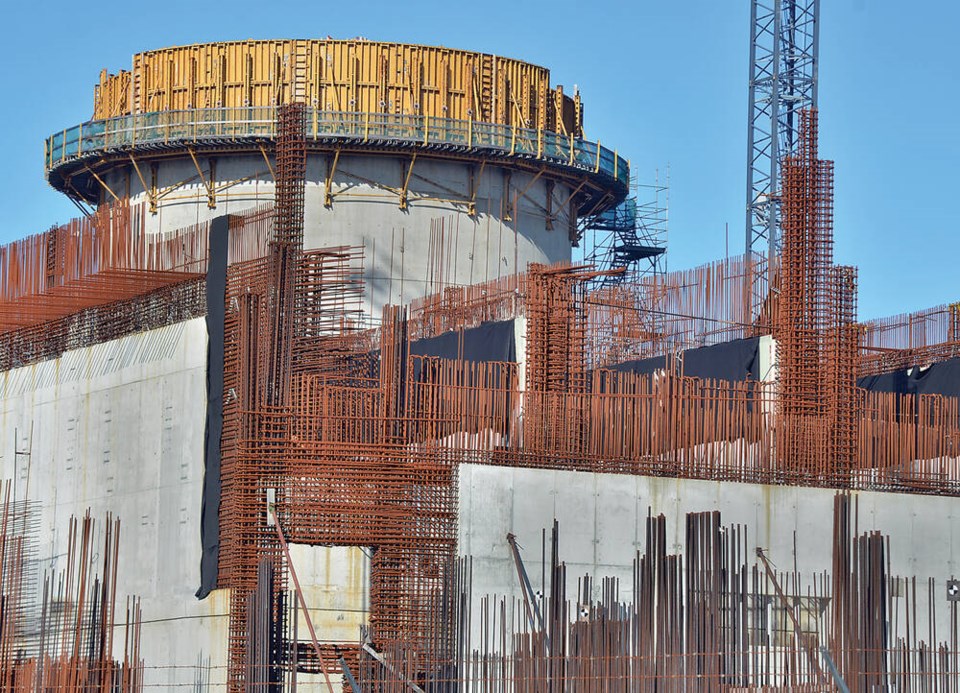I’ve stopped thinking of it as infrastructure. I think of it as infrustration.
Case in point: the North Shore Wastewater Treatment Plant. How could this shambles worsen for us in the City and District of North Vancouver and West Vancouver for a plant ensnared in cost overruns, litigation, delays, and public servants and politicians running for cover? Ingeniously, a way has been found as we at last need to pay the piper.
It is predictable that the parochialism of communities has a way of surfacing when dollars are at stake. We conveniently forget we’re grouped as a region at Metro Vancouver for a reason, primarily so that large ticket items can be amortized sensibly across nearly two dozen municipalities.
But when a large ticket item metastasizes, where there has been no transparency along the way to divulge cost overruns, and where there has been no accountability for the failure to control said expenses, some of us get what a lot of us in the region think is owed to us. Small-town mayors become small-minded ones, and those most benefiting from the infrastructure foot a disproportionate privilege to pay for it.
Such was the case last Friday as the Metro Vancouver board pushed through an onerous sewage bill – more like a sentence – for the North Shore for the next three decades to pay for a plant originally contracted at $550 million and expected to weigh in around $4 billion.
North Shore mayors, with only Vancouver in their corner, were outnumbered by other directors in imposing on homeowners an increase on average of $590 a year, for 30 years, in an absurd, improvisational distortion of the Metro Vancouver mandate.
Metro abandoned any shared-cost formula and was making it up as it went along – as it likely will when the Iona Island plant in Richmond has to find $9 billion or so before long.
The result is that we’ll have some world-class sewage bills. Congratulations, everyone, we’ve hit the big time!
So, now that Metro Vancouver has hosed the North Shore on the plant, it is worth asking two things: What is our next big need, and can we expect the rest of the Lower Mainland to support it?
My money is on a mass rapid transit project. It’s been obvious for quite some time that the two crossings into and out of the North Shore are insufficient to today’s tasks, much less the challenges to come.
In the immediate term, heaven help us if we’re struck by forest fires or an earthquake, or the Ironworkers Memorial Bridge has a Baltimore-like ship collision (Lions Gate Bridge has weight restrictions). Day-to-day travel is bumper-to-bumper at the bookends of weekdays or on weekend afternoons. It will not improve.
Our region continues to study how it wishes to address the problems, so it is far, far away from a strategy to secure financing through TransLink. The longer it takes, the more those multi-billion tranches of taxpayer dollars rarify.
A 2023 McElhanney/Spannovation study for the District of North Vancouver examined three possibilities for the Burrard Inlet Rapid Transit (BIRT) project as the Ironworkers Bridge approaches end-of-life (64 years and counting): by bus, light-rail, and SkyTrain. The latter is the most ambitious, expensive yet effective, and it would be folly to choose otherwise. Recent bus-line upgrades, with more to come, are merely leading to light-rail or SkyTrain.
A 19.5-kilometre SkyTrain route would break from the Millennium Line at Metrotown and travel along Willingdon Avenue, on to Hastings Street, into the PNE, across Second Narrows, into Phibbs Exchange, along Main Street, Third Street and Marine Drive into Park Royal.
It is expected to carry 120,000 riders daily by 2050 with an end-to-end travel time of 23 minutes. Yes, there are bridges to build and demolish and stations to situate. Let’s not even try to predict the cost for now. The $4 billion estimate is a rough-out.
The good news is Vancouver and Burnaby – indeed, the mayors’ council itself – appear to be allies. Still, it will be a large task to secure funds, even if everyone suddenly plays like a team and we aren’t again hooped.
Kirk LaPointe is a West Vancouver columnist with an extensive background in journalism. His column on North Shore issues runs bi-weekly.
What are your thoughts? Send us a letter via email by clicking here or post a comment below.



